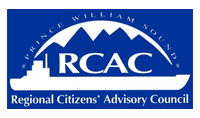

Prince William Sound Regional Citizens` Advisory Council
Prince William Sound Regional Citizens` Advisory Council is an independent non-profit corporation guided by its mission: citizens promoting environmentally safe operation of the Alyeska Pipeline marine terminal in Valdez and the oil tankers that use it. The council is immediately accountable to those it represents: the people and groups with the most to lose from another catastrophic oil spill in Prince William Sound. They include communities and interest groups in a region stretching from the sound itself to Kodiak Island to lower Cook Inlet—all areas that were touched by oil from the Exxon Valdez oil spill. The council`s 19 member organizations include representatives from communities, aquaculture, commercial fishing, environmental, Alaska Native, recreation, and tourism groups.
Company details
Find locations served, office locations.
- Business Type:
- Government agency
- Industry Type:
- Water and Wastewater
- Market Focus:
- Internationally (various countries)
- Year Founded:
- 1989
